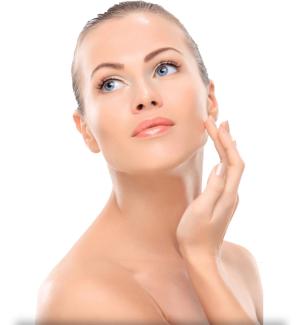
The quest for the "Fountain of Youth" has captivated human imagination for centuries. This mythical source, often referred to as providing "immortal water," is believed to grant eternal youth and longevity to anyone who drinks or bathes in its waters. Various cultures and historical accounts have pointed to different locations around the world as the possible sites of this legendary fountain.
Bimini, The Bahamas
One of the most famous legends of the Fountain of Youth is tied to Bimini, a district in the Bahamas. According to folklore, Spanish explorer Juan Ponce de León embarked on a voyage in the early 16th century to find this miraculous source of youth. Indigenous tales suggested that Bimini, located in the turquoise waters of the Caribbean, was home to waters that could restore youth. Despite de León's extensive exploration, no concrete evidence of the fountain was ever discovered, yet the myth endures, drawing curious visitors to the islands.
St. Augustine, Florida, USA
Another prominent site associated with the Fountain of Youth is St. Augustine in Florida. Here, the Fountain of Youth Archaeological Park claims to be the location where Ponce de León might have landed in 1513. Visitors to the park can drink from a natural spring that has become synonymous with the legendary fountain. Although scientific studies have not substantiated any extraordinary properties of the water, the site remains a popular historical attraction.
The Himalayas, India and Tibet
In Eastern traditions, the mythical land of Shambhala, hidden in the remote valleys of the Himalayas, is often linked with the concept of the Fountain of Youth. Ancient texts and Tibetan Buddhist teachings describe Shambhala as a paradise where the inhabitants possess secret knowledge, including access to life-extending waters. The exact location of Shambhala remains a mystery, and it is often considered a spiritual rather than a physical place. Nonetheless, the idea of Himalayan waters having rejuvenating properties persists, supported by the region's long-standing association with mysticism and healing.
Hunza Valley, Pakistan
The Hunza Valley, located in the Gilgit-Baltistan region of Pakistan, is often romanticized as a modern-day equivalent of the Fountain of Youth. The Hunza people are reputed for their extraordinary longevity and robust health, which many attribute to the pure glacial water they consume, rich in minerals. While scientific scrutiny has not confirmed the presence of "immortal water," the valley's pristine environment and traditional lifestyle continue to intrigue researchers and wellness enthusiasts.
Okinawa, Japan
Okinawa, Japan, is home to some of the world's longest-living people, often linked to the island's diet, lifestyle, and potentially its natural water sources. The residents of Okinawa, known for their high life expectancy and low rates of chronic diseases, have access to mineral-rich water that some claim has beneficial properties. While not a traditional "Fountain of Youth," Okinawa represents a real-world example where local water and lifestyle contribute to remarkable longevity.
The allure of the Fountain of Youth and its promise of immortal water continues to enchant explorers, historians, and adventurers. While no scientific evidence has definitively proven the existence of such a fountain, the legends and associated locations reflect humanity's enduring desire to unlock the secrets of eternal youth and health. Whether found in the historical tales of Bimini and St. Augustine, the mystical mountains of the Himalayas, the serene Hunza Valley, or the longevity-rich island of Okinawa, the search for the Fountain of Youth highlights a universal quest for well-being and vitality that transcends cultures and ages.
The Effects of the Fountain of Youth on the Human Body
The mythical "Fountain of Youth" has long been a symbol of humanity's quest for eternal youth and longevity. Although it remains a legend, understanding how such a source might affect the human body allows us to explore the concept of rejuvenation and longevity. The effects attributed to the Fountain of Youth can be conceptualized through the lens of modern science, particularly in the fields of anti-aging and regenerative medicine.
1. Cellular Rejuvenation
The most profound effect of the Fountain of Youth would be on the cellular level. It is believed that the immortal water from this mythical source could:
- Promote Cell Regeneration: The water might stimulate the body's ability to regenerate cells, effectively replacing old or damaged cells with new ones. This process would counteract the natural wear and tear that comes with aging.
- Enhance Telomere Length: Telomeres, the protective caps on the ends of chromosomes, shorten with each cell division, leading to aging. The Fountain of Youth's waters might maintain or even lengthen telomeres, thereby extending the lifespan of cells.
2. Reversal of Age-Related Decline
A key allure of the Fountain of Youth is its purported ability to reverse the physical and mental declines associated with aging. This would include:
- Restoration of Physical Appearance: The water could potentially reverse the visible signs of aging, such as wrinkles, sagging skin, and gray hair, restoring a youthful appearance.
- Improvement in Cognitive Function: It might also enhance brain health, reversing cognitive decline and improving memory, focus, and overall mental acuity.
3. Enhanced Immune Function
Another significant benefit might be the strengthening of the immune system. The immortal water could:
- Boost Immunity: Enhance the body's natural defenses, making it more resilient against infections, diseases, and age-related immune decline.
- Promote Healing: Accelerate the healing process of wounds and injuries, leading to quicker recovery times.
4. Hormonal Balance
Aging is often accompanied by a decline in hormone production. The Fountain of Youth might restore hormonal balance by:
- Regulating Hormone Levels: Ensuring optimal levels of hormones such as estrogen, testosterone, and human growth hormone (HGH), which are crucial for maintaining vitality and energy.
- Improving Metabolic Function: Enhancing metabolism and maintaining healthy body weight and energy levels.
5. Detoxification and Longevity
The mythical water could also have detoxifying properties:
- Elimination of Toxins: Help the body eliminate accumulated toxins and free radicals, which are known to contribute to aging and various diseases.
- Promotion of Longevity: By reducing oxidative stress and cellular damage, the water could extend overall lifespan and enhance the quality of life.
6. Emotional and Psychological Well-being
In addition to physical health, the Fountain of Youth might have positive effects on emotional and psychological well-being:
- Enhanced Mood and Vitality: Improve mood, reduce stress, and enhance a sense of overall well-being and vitality.
- Increased Resilience: Boost resilience against age-related mental health issues such as depression and anxiety.
While the Fountain of Youth remains a myth, its legendary effects encapsulate humanity's deepest desires for longevity, health, and rejuvenation. Modern science continues to explore ways to achieve these goals through advancements in regenerative medicine, anti-aging therapies, and wellness practices. By understanding the potential impacts of the Fountain of Youth on the human body, we can better appreciate the ongoing efforts to unlock the secrets of aging and strive for a healthier, longer life.
Experiences of People Who Have Used the Fountain of Youth or Immortal Water
The concept of the Fountain of Youth, while mythical, has been the subject of countless stories, legends, and anecdotal accounts. These accounts often describe transformative experiences, miraculous rejuvenations, and profound changes in physical, mental, and emotional well-being. While no verifiable evidence supports the existence of such a fountain, examining these stories can provide insight into the enduring allure and imagined benefits of this legendary source.
1. Physical Rejuvenation
Many stories about the Fountain of Youth emphasize dramatic physical transformations:
- Restoration of Youthful Appearance: Individuals who purportedly used the fountain's water often report the disappearance of wrinkles, graying hair returning to its original color, and skin becoming more supple and radiant. They describe looking years, if not decades, younger.
- Increased Vitality and Strength: Users claim to experience a surge in energy levels, physical strength, and endurance. They feel as if their bodies have been reset to a more youthful state, capable of performing strenuous activities with ease.
2. Enhanced Health and Healing
The healing properties of the immortal water are a common theme:
- Curing Chronic Conditions: Many legends recount stories of individuals who were cured of long-standing illnesses, chronic pain, and age-related ailments after using the water. Conditions such as arthritis, heart disease, and even terminal illnesses are said to vanish.
- Accelerated Healing: Accounts often mention rapid recovery from injuries, with cuts, bruises, and broken bones healing at an astonishing rate.
3. Mental and Cognitive Benefits
Improvements in mental faculties are frequently noted:
- Sharpened Cognitive Abilities: Users report enhanced memory, quicker thinking, and improved problem-solving skills. Mental fog and forgetfulness are said to dissipate, replaced by clarity and sharpness.
- Emotional Stability and Joy: Many stories highlight a significant uplift in mood, with individuals feeling happier, more content, and emotionally balanced. Anxiety, depression, and stress are often described as being alleviated.
4. Extended Longevity
One of the most appealing aspects of the Fountain of Youth is its supposed effect on lifespan:
- Prolonged Life: Users frequently claim to experience not only an improved quality of life but also a significant extension of their lifespan. Some accounts speak of living well beyond the normal human life expectancy, maintaining health and vigor throughout.
- Slowed Aging Process: Many narratives suggest that while aging does not entirely stop, it slows down considerably. Individuals continue to age but at a much slower rate, allowing them to enjoy life for a much longer period.
5. Spiritual and Mystical Experiences
Beyond the physical and mental, some stories delve into more mystical realms:
- Heightened Awareness: Users often describe an enhanced sense of spiritual awareness and connection. They feel more attuned to the world around them and report experiences of profound inner peace and understanding.
- Transcendent Experiences: There are accounts of mystical experiences, such as visions, encounters with otherworldly beings, or profound insights into the nature of existence and the universe.
While the Fountain of Youth and its immortal water remain in the realm of myth and legend, the experiences attributed to it reflect deep human desires for health, vitality, and longevity. These stories, whether based on ancient folklore or modern-day narratives, underscore the timeless fascination with the possibility of transcending the limitations of aging and achieving a state of perpetual youth and well-being.
The Reality of the Fountain of Youth and Immortal Water: Scientific Perspective
The Fountain of Youth and the concept of immortal water have been enduring elements of myth and legend for centuries. However, despite the numerous tales and anecdotal accounts, there is no scientific evidence to support the existence or efficacy of such a phenomenon. Here is an exploration of why this remains a myth and what modern science says about the quest for eternal youth.
1. Historical and Mythical Context
- Legends and Explorers: Historical figures like Juan Ponce de León, who searched for the Fountain of Youth in the 16th century, fueled the myth. However, his expeditions did not yield any evidence of such a fountain.
- Cultural Myths: Various cultures have their own versions of rejuvenating waters or elixirs of life, but these remain stories without empirical proof.
2. Scientific Investigations
- Lack of Empirical Evidence: No archaeological or scientific studies have uncovered a physical source of water with life-extending properties.
- Controlled Studies: Modern science relies on controlled experiments and peer-reviewed research. To date, no such studies have validated the existence of water that can significantly reverse aging or provide immortality.
3. Biological Limitations
- Aging Mechanisms: Aging is a complex process involving genetic, environmental, and lifestyle factors. Telomere shortening, cellular damage, and oxidative stress are natural parts of aging that cannot be completely halted by any known substance.
- Regenerative Medicine: While advancements are being made in regenerative medicine, including stem cell research and gene therapy, these are aimed at mitigating age-related decline rather than providing immortality.
4. Modern Anti-Aging Research
- Longevity Research: Scientists are actively researching ways to extend healthy lifespan. This includes studying the biology of aging, caloric restriction, and the effects of certain compounds like resveratrol and NAD+ precursors.
- Practical Approaches: Practical methods such as a healthy diet, regular exercise, and avoiding harmful habits are currently the best strategies for promoting longevity and well-being.
5. Misconceptions and Pseudoscience
- Commercial Exploitation: The myth of the Fountain of Youth has led to the commercialization of various products claiming anti-aging benefits. Most of these lack scientific backing and can be misleading.
- Critical Thinking: It is important to approach such claims with skepticism and rely on scientifically validated information.
The Fountain of Youth and the concept of immortal water remain firmly in the realm of myth and legend. Despite the fascination and desire for such a miraculous source, modern science has not found any evidence to support its existence. Aging is a natural, complex process, and while significant strides are being made in understanding and potentially mitigating its effects, the notion of a singular, magical solution is not supported by current scientific knowledge. The best approach to longevity remains grounded in healthy living, scientific advancements, and realistic expectations.






